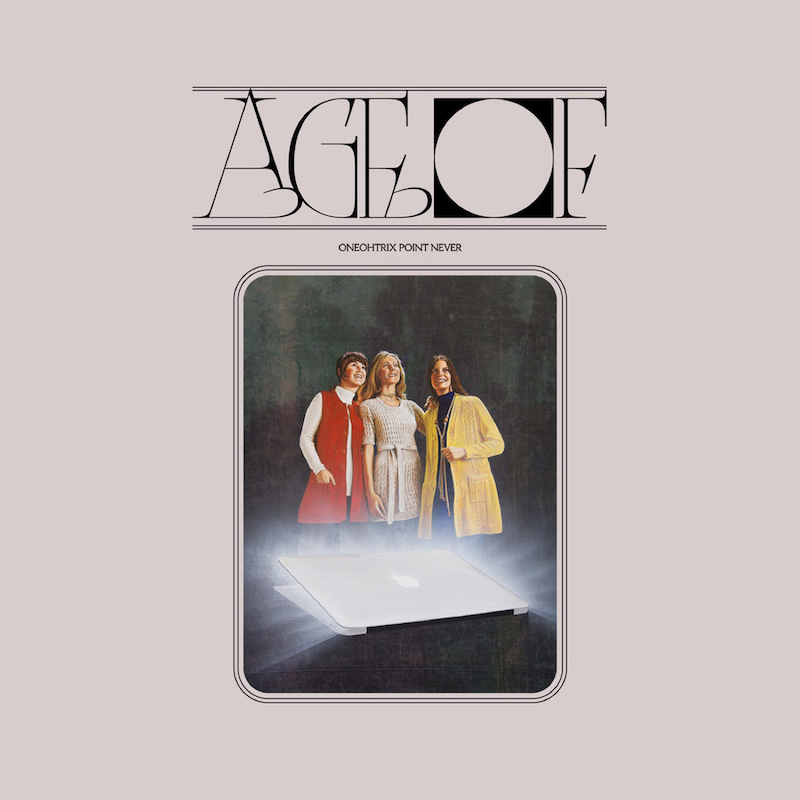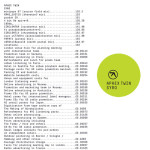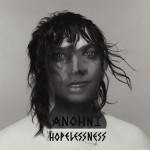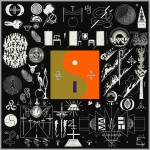Oneohtrix Point Never : Age Of

In a New York Times interview last month, Daniel Lopatin—the mind behind Oneohtrix Point Never and a host of other electronica concerns—called his manner of musical ideation and composition “Compressionism.” He loosely defined it as the sifting of too many inputs into something not quite simplified, but at least more organized. You can look at the facile descriptions of some of his finished works (“built from TV commercial samples,” “alien autobiography”), then listen to the contents of albums like Replica and Garden of Delete zoom off beyond recognizable outlines into planned chaos. Very little of Lopatin’s OPN output is traditional, comfortable, or literal. I’ve been OK with that, even if the results have been artistically grand yet sonically inaccessible.
Having just completed a victory lap with critics after a curiously engaging take on movie music for Good Time, Oneohtrix Point Never brings us Age Of to consider as the first true pop album in his catalog. A fucking weird-ass pop album to be sure, but there you have it. Lopatin drapes it in album art suggesting centuries-old mythological imagery, which is the least convincing storytelling of his career. What really matters is the sound, falling into a small set of cult classic (if not full-on classic) albums that are tech-assisted updates of other musics. I’m endlessly reminded here of the Frankenstein’s monsters of folk formed by Beck on Mellow Gold and Odelay, and by Bon Iver on 22, A Million, one style filtered through others to produce something independent of most. On Age Of, OPN does this with R&B.
By and large, you can’t do R&B without singing your heart out. With strategic assistance from Anohni and Prurient’s Domenick Fenrow, Lopatin very obviously sings more actual lyrics here than on any other OPN release. These vocals become new targets for his multitudes of manipulations, and they’re glitched, magnified, and brought to screeching halts like every other stem in his production window. But there’s also an embrace of vocoders and Autotune making songs like “Black Snow” and “Babylon,” in their least obscured moments, feel lifted right from the urban charts. “The Station” was a Lopatin demo rejected by Usher, rescued and given a new focus on Spanish guitar. And the fantastic, fascinating “Warning” uses skipping-CD arrangements from the Oval school to give its ghostly melodies an apocalyptic bent.
Elsewhere, songs like “RayCats” and “Toys 2” find OPN mucking around with the slow roll of smooth jazz, like a child beating at a languid stream with the nearest fallen branch. And for all of the moments where OPN’s sound comes squealing out of your speakers like a horror-movie jump-scare, Age Of also commits to long stretches of relative clarity in musical styles and themes. (Some credit for that should probably go to James Blake, himself a veteran of weird electronica-turned-pop, who produced and mixed the album.) Harpsichord gives passages and entire songs a more classical feel, and “Still Stuff That Doesn’t Happen” shines light on folksy guitar picking. The album even closes with a pair of generated atmospheres suggesting both Tangerine Dream’s kosmische and Boards of Canada’s IDM time warps.
Oneohtrix Point Never uses whines, drones, and distortion to purposefully, even frightfully obscure the underlying beauty of the tunes on Age Of. And yet, any other musicians playing this stuff twice as clear would likely come across not even half as cool. It’s a suspenseful manifesto on sonic interference and personal-space invasion, and where other critics have called it Lopatin’s toughest nut to crack, I find it the most accessible and replayable point in the OPN discography.
Similar Albums:
 Aphex Twin – SYRO
Aphex Twin – SYRO
 ANOHNI – HOPELESSNESS
ANOHNI – HOPELESSNESS
 Bon Iver – 22, A Million
Bon Iver – 22, A Million
Support our site: Buy at Turntable Lab
Adam Blyweiss is associate editor of Treble. A graphic designer and design teacher by trade, Adam has written about music since his 1990s college days and been published at MXDWN and e|i magazine. Based in Philadelphia, Adam has also DJ’d for terrestrial and streaming radio from WXPN and WKDU.

